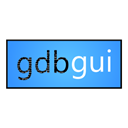Uncovering the Best GDBFrontend Alternatives for Enhanced Debugging
GDBFrontend is an easy, flexible, and extensible GUI debugger that has served many developers well. However, like with any software, there might be reasons to seek out alternatives – perhaps for specific features, platform compatibility, different user interfaces, or open-source preferences. If you're looking to explore other options that offer similar or even enhanced debugging capabilities, you've come to the right place.
Top GDBFrontend Alternatives
Whether you're after a full-fledged IDE integration, a lightweight graphical front-end, or something built for a specific development environment, these GDBFrontend alternatives offer a range of powerful debugging solutions.

GNU Data Display Debugger
GNU Data Display Debugger (DDD) is a robust graphical front-end for various command-line debuggers like GDB, DBX, and JDB. It's a fantastic GDBFrontend alternative for users on Free, Open Source, Linux, BSD, and Cygwin platforms who need a comprehensive visual interface for their debugging needs, offering powerful debugger features.

Nemiver
Nemiver is a standalone graphical C and C++ debugger that integrates seamlessly into the GNOME desktop environment. As a Free and Open Source solution for Linux, Nemiver is an excellent GDBFrontend alternative for developers who work primarily within the GNOME ecosystem and require a dedicated debugger and developer tool.

VisualGDB
VisualGDB is a powerful Microsoft Visual Studio add-in that integrates GCC and GDB directly into Visual Studio. This Commercial solution for Windows and Microsoft Visual Studio is an ideal GDBFrontend alternative for those working on embedded firmware, Linux applications, or native Android code, offering extensive debugging capabilities and Android development features.

wingdb
WinGDB is another Commercial extension for Visual Studio, designed to facilitate debugging with the GNU Project Debugger under Visual Studio. For Windows users committed to the Microsoft Visual Studio environment, WinGDB serves as a strong GDBFrontend alternative by allowing seamless development with GNU tools and robust debugger features.

Affinic Debugger GUI
Affinic Debugger GUI (ADG) is a versatile graphical user interface designed for various debuggers. Available as Freemium software across Mac, Windows, and Linux, ADG is a flexible GDBFrontend alternative that provides graphical windows to unlock the full potential of underlying debuggers, making it a powerful debugger choice for cross-platform development.

Insight
Insight is a version of GNU Project Debugger that integrates a graphical user interface using Tcl/Tk, making it a fully integrated GUI rather than a separate front-end. As a Free, Open Source solution available on Mac, Windows, Linux, and Tcl, Insight is a compelling GDBFrontend alternative for those seeking a unified debugging experience with built-in GUI features.

Kdbg
KDbg offers an intuitive graphical user interface to gdb, the GNU debugger, simplifying tasks like setting breakpoints, inspecting variables, and stepping through code. As a Free and Open Source option specifically for Linux, KDbg is a strong GDBFrontend alternative for developers who prefer a straightforward and user-friendly GUI for their debugging workflow.

gdbgui
gdbgui is a unique browser-based front-end to gdb, the GNU debugger, supporting C, C++, Go, and Rust. As a Free and Open Source solution for Linux, gdbgui provides an accessible GDBFrontend alternative that lets you add breakpoints, view stack traces, and more, all within your web browser, making it ideal for a flexible debugging setup and developer tools.
Exploring these GDBFrontend alternatives can open up new possibilities for your development workflow. Each offers distinct advantages in terms of platform support, integration, and features. We encourage you to delve deeper into each option to determine which best aligns with your specific debugging needs and preferences.